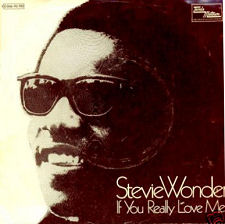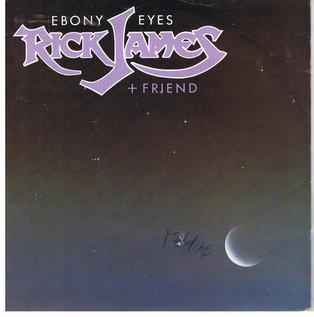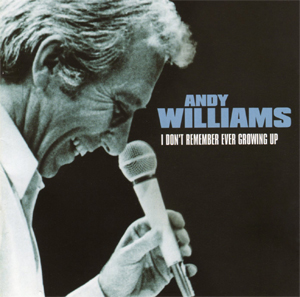
"If You Really Love Me" is a song written by Stevie Wonder and Syreeta Wright. Wonder recorded the song and released his version as a single from his 1971 album Where I'm Coming From. The single peaked in the top 10 of the Billboard Hot 100, Billboard′s R&B chart, and Billboard′s Easy Listening chart.
"Let's Fall in Love" is a song written by Harold Arlen (music) and Ted Koehler (lyrics) for the film Let's Fall in Love and published in 1933. In the film, it is heard during the opening credits and later sung by Art Jarrett and chorus, and by Ann Sothern.

"Sideshow" is a song recorded by American R&B soul vocal quintet Blue Magic, released in 1974. It was first released on the album Blue Magic and when issued as a single it sold over a million copies, going to No.1 R&B in April 1974 and No.8 pop in the United States in that summer. Billboard ranked it as the No.19 song for 1974. In the Canadian Year-end chart, it was No.77.
"(I Love You) for Sentimental Reasons" is a popular song written by Ivory "Deek" Watson, founding member of the Ink Spots and of the Brown Dots, and William "Pat" Best, founding member of the Four Tunes.

"Grazing in the Grass" is an instrumental composed by Philemon Hou and first recorded by the South African trumpeter Hugh Masekela. Released in the United States as a single in 1968, it followed United States trumpeter Herb Alpert's vocal performance of "This Guy's in Love with You" to the top spot on the Hot 100 chart, ranking it as the 18th biggest hit of the year. The song also reached No. 15 Adult Contemporary. Masekela included the song in his albums Grazing in the Grass: The Best of Hugh Masekela (2001), Still Grazing (2004), and Live at the Market Theatre (2006).

"My Special Angel" is a popular song by Jimmy Duncan, published in 1957.

"I'll Be Good to You" is a 1976 hit song by R&B duo the Brothers Johnson. George Johnson, one of the two Johnson brothers in the band, wrote the song after deciding to commit to a relationship with one woman, instead of dating several at a time. While George was recording a demo for the song, family friend Senora Sam came by and added some lyrics. Brothers Johnson producer and mentor Quincy Jones heard the song, liked it, and convinced George to sing lead on the finished track. Released from their debut album, Look Out for #1, it was a top-ten hit on the Billboard Hot Singles Charts, peaking at number three, and a number one song on the Billboard R&B Charts during the summer of 1976. The single was later certified gold by the RIAA.

"Love Ballad" is a song by R&B/Funk band L.T.D. Jeffrey Osborne is the lead singer.

"You Beat Me to the Punch" is a soul single by Motown singer Mary Wells, released on the Motown label in 1962. It was co-written by Smokey Robinson of the Miracles, who was responsible for the most of the hits released by Wells, along with another Miracles member, Ronnie White, during her time as a Motown artist.
"Two Lovers" is a single released in 1962 by Mary Wells on the Motown record label. The song was the third consecutive hit to be both written and produced by Smokey Robinson of The Miracles and recorded by Mary Wells, the two previous charters being "The One Who Really Loves You" and "You Beat Me to the Punch." The song's cleverly devised lyrics at first appear to be about a girl singing to one lover who is "sweet and kind" and a second who treats her bad and makes her sad; eventually, the girl reveals that the two lovers are actually the same person. The song became Wells's most successful release to date, reaching #1 on the Billboard R&B chart and #7 on the Billboard pop chart. Its success would be eclipsed two years later by the singer's most successful release, "My Guy."
"So Much in Love" is a song written by George Williams, Billy Jackson, and Roy Straigis. It was originally performed by Williams's American soul vocal group the Tymes and was released in the summer of 1963 on Cameo Parkway Records, which produced many pre-Beatles hits of the 60s such as The Twist. It quickly became The Tymes' first hit single, topping the US Billboard Hot 100 singles chart on August 3, 1963, and remaining there for one week, as well as peaking at No. 4 on the Hot R&B Singles chart.

"Ebony Eyes" is a song recorded by American singers Rick James and Smokey Robinson for the Gordy (Motown) label. It was released in November 1983 as the third single from James' seventh studio album Cold Blooded. The song was produced and arranged by James. It peaked at number 43 on the Billboard Hot 100 chart.

"One of a Kind (Love Affair)" is a song recorded by the American R&B vocal group The Spinners (known as "Detroit Spinners" in the UK). It was written by Joseph B. Jefferson and produced by Thom Bell.
"Call Me" is a song written and recorded by American singer Aretha Franklin. The song was co-produced by Jerry Wexler, Tom Dowd and Arif Mardin.
"Quiet Village" is an orchestral pop instrumental that was written and originally performed by Les Baxter in 1951 and an instrumental album from 1959 by Martin Denny. In the liner notes to his album, Ritual of the Savage , Baxter described the themes he was conveying in the work:
[t]he jungle grows more dense as the river boat slowly makes its way into the deep interior. A snake slithers into the water, flushing a brilliantly plumaged bird who soars into the clearing above a quiet village. Here is a musical portrait of a tropical village deserted in the mid-day heat.
"Inside Love " is a song written by Kashif, and performed by American R&B singer George Benson.
"Funny How Time Slips Away" is a song written by Willie Nelson and first recorded by country singer Billy Walker. Walker's version was issued as a single by Columbia Records in June 1961 and peaked at number 23 on the Hot C&W Sides chart. The song has been featured in several live action films and television shows, such as in the first episode of the second season of AMC’s Better Call Saul and in the 2020 Netflix drama The Devil All the Time.

The Andy Williams Show is the twenty-sixth studio album by American pop singer Andy Williams that was released in the fall of 1970 by Columbia Records. In his review on AllMusic.com, William Ruhlmann writes that "The Andy Williams Show LP was not a soundtrack recording from the TV series, and it was not really a live album, although it gets categorized as such. What appears to be the case is that Columbia Records took a group of Williams' studio recordings, most of them made during the summer of 1970 and consisting of his versions of recent soft rock hits, and added a lot of canned applause along with some of the kind of musical interludes used to usher numbers on and off on the show, including bits of its "Moon River" theme music at the start and the finish."

Those Were the Days is an album by American pop singer Johnny Mathis that was released on November 6, 1968, by Columbia Records. It followed the formula of including covers of recent hit songs, the oldest, in this case, being "The End of the World", which hadn't been on the charts since 1963. Two of the 10 tracks, however, had not been released as singles by other artists: "Every Time I Dream of You", which had appeared as an instrumental on Bert Kaempfert's 1967 album Love That Bert Kaempfert, and "You Make Me Think About You", which was first heard in the 1968 film With Six You Get Eggroll.

I Don't Remember Ever Growing Up is the forty-third and final studio album by American pop singer Andy Williams, released in the UK by the Demon Music Group in 2007. In the liner notes of the album Williams writes, "Over the past few years I have come across songs that I really wanted to record. I picked 13 of my favorites and set out to make a new record." While the title track is the only new song, the other 12 selections were chart hits for other artists or, as is the case with "Desperado" by the Eagles, received critical acclaim without having been released as a single.












